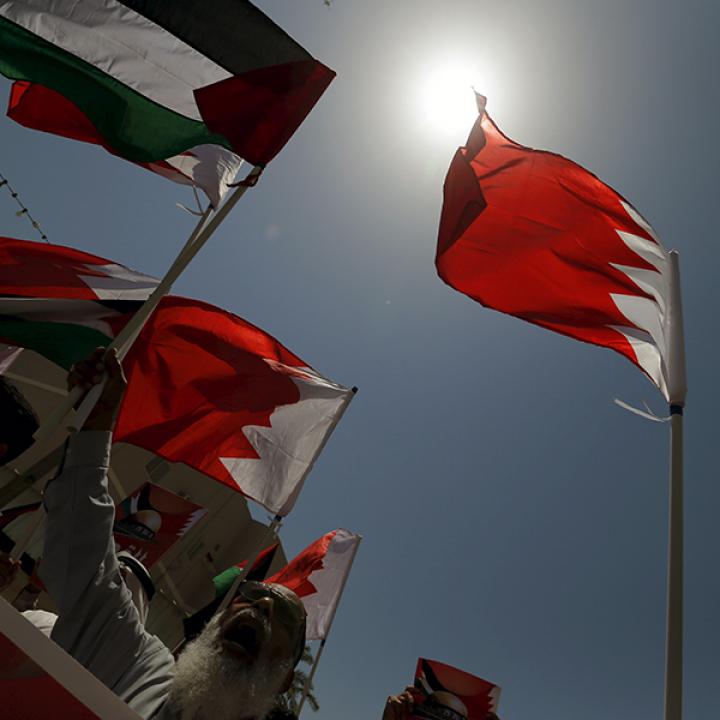

The announcement of a peace deal between Israel and Bahrain suggests that the Gulf island kingdom has reassessed the danger of opposition from both its majority Shia population and its Sunni community.
Uniquely, Bahrain is the only Gulf Arab state with an indigenous Jewish community. Once numbering several thousand, the community has been depleted over the years by emigration, particularly after the establishment of the state of Israel. The group’s current number is fewer than forty; nonetheless, it includes an appointed member of the National Assembly and a former ambassador to Washington.
Bahrain’s Jews have been careful to maintain a low profile, until recently conducting religious services at home rather than the small synagogue building in the old part of Manama, the capital. Their protector has been King Hamad bin Isa al-Khalifa, who has personally backed a policy of interfaith dialogue and peaceful coexistence, engaging with other interfaith groups across the world. (The monarch may well feel that the United Arab Emirates’ “Abraham Accord” with Israel imitates his own efforts.)
Such a policy, along with engagement with international Jewish personalities, has meant that Bahrain’s political engagement with Israel was only a matter of time. The past year or so has seen both advances and setbacks. Hopes of an Israeli delegation at a business conference in Bahrain in April 2019 were dashed after weeks of public outcry by Arab groups, who protested the Israelis’ scheduled attendance. (The Israelis did subsequently attend, but as individuals who avoided drawing attention to themselves.) Yet, in June 2019, Israelis were able to attend an economic seminar in Bahrain that was sponsored by the United States as part of its Middle East peace plan. Further, Israeli officials and journalists prayed at the synagogue in Manama, which had recently been renovated.
Given its proximity to Saudi Arabia (with which it is joined by a causeway) and its tense relationship with Iran (which once claimed its territory), Bahrain’s opening to Israel is more risky than the UAE’s move. Riyadh, previously a brake, appears to have encouraged the development. Tehran is sure to disapprove. Members of Bahrain’s civil society, both Shia and Sunni, came out against the UAE’s normalization, and are therefore likely to disapprove of the decision as well.
The main question is whether Iran’s hostility will instigate a fresh round of street protests by Shia militant youth. The Sunni community will be more influenced by the ruling al-Khalifa family, some of whom are hardliners on the threat from Iran and may regard the diplomatic shift as premature.
Washington’s influence in Bahrain is considerable, given the presence there of the U.S. Navy’s Fifth Fleet headquarters. Because of the economic benefits it brings, the facility is not contentious in local political terms. Bahrain’s diplomatic step is predictable but also brave. Even more than the UAE normalization shift, Bahrain’s future relationship with Israel will need to be protected from a range of dangers.
Simon Henderson is the Baker Fellow and director of the Bernstein Program on Gulf and Energy Policy at The Washington Institute.



